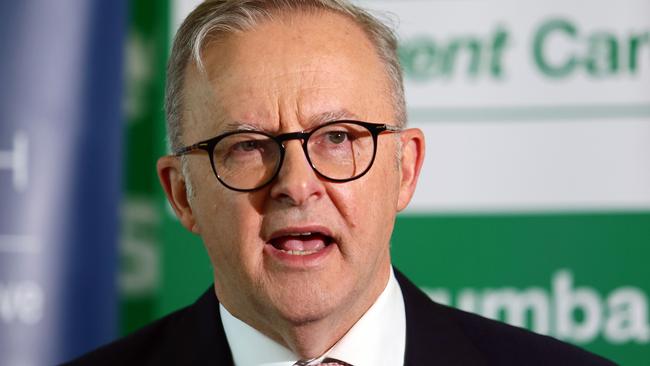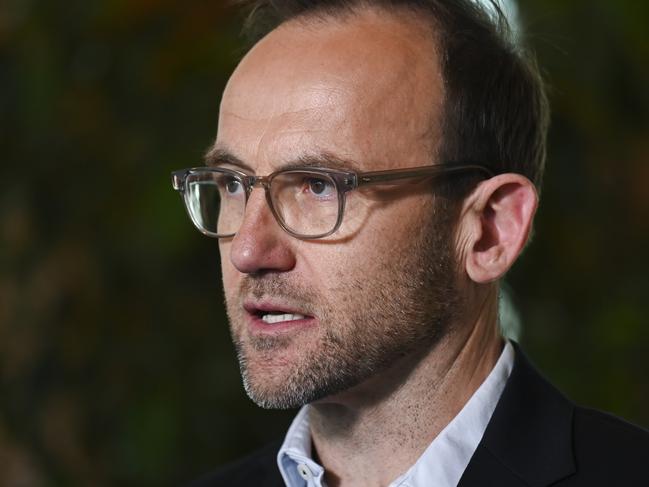Anthony Albanese rules out horse trading with crossbench
Any increase to Jobseeker will be considered as part of the budget process, says Anthony Albanese, after ruling out horse trading with the Greens on tax cuts.

Anthony Albanese has ruled out horse trading with the crossbench on his stage three tax cuts overhaul, saying any increase to Jobseeker will be considered as part of the budget process.
The Australian revealed on Thursday Greens leader Adam Bandt was considering demanding an increase to Jobseeker in exchange for his party’s support for the revamped stage three tax cuts.
The Greens will be crucial to Labor’s stage three passing parliament if the Coalition opposes the changes.
But the Prime Minister said the government’s proposal “stands on its merits”.

“We’re not going to trade, if you like, across a whole range of issues,” Mr Albanese told ABC radio.
“This (an increase to Jobseeker) is something that we consider in every budget, I’ve said that. We had a significant increase in the last budget on JobSeeker, of Youth Allowance, of Parenting Payment. Of course, we made the very significant difference on Single Parent Payments. We had increases in Austudy and Youth Disability Support Pension by $40 a fortnight.
“This benefited over a million Australians. We’ll always do what we can to provide support.”
Mr Albanese said the Coalition and crossbench would have to decide if Labor’s tax cuts were better than the legislated ones, which are due to start on July 1.
The Prime Minister rejected the notion the March 2 Dunkley by-election would act as a referendum on Labor’s stage three overhaul, despite it being the first time voters can express their thoughts on the policy at the ballot box.

Amid concern from economists the stage three rewrite could delay interest rate reductions this year, Mr Albanese said Treasury advice suggested otherwise.
Asked if the government’s changes could delay interest rate relief, the Prime Minister said: “No. And that is precisely what Treasury have said, why we released the Treasury documents, eight pages of analysis, as well as a number of pages, including graphs and the assessment.
“That’s why we very much focused on making sure it was revenue neutral, the changes that we had. That’s why we also consulted the RBA Governor, both the Treasurer and the Treasury secretary. And this will not have an inflationary impact because, although people on low and middle income of course, are more likely to spend, because that’s one of the reasons why we’re doing it, they don’t have the luxury of putting it into savings that’s balanced out by the increased labour supply that will occur as a result of particularly that decrease in that first rate from 19 cents to 16 cents, so that every Australian taxpayer gets a tax cut.”




To join the conversation, please log in. Don't have an account? Register
Join the conversation, you are commenting as Logout